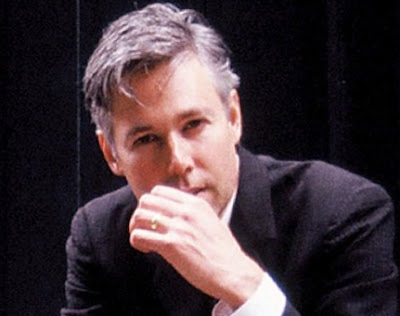Respect: The Legacy of the Beastie Boys
I was a pre-teen the first time I heard the Beastie Boys' "Fight for Your Right." Their 80s rebelyell roused an entire generation to engage in an adolescent version of the 7 Deadly Sins. It wasn't one of my favorite songs - mainly because I was that odd teenager without the party gene - but they shook my psyche. It was one of those rare songs that you remember with astounding detail, like "Smells Like Teen Spirit" and "Welcome to the Jungle." Once you heard it, you knew we were heading into a new era.
When hip-hop mogul Russell Simmons announced Adam Yauch's death from cancer this Friday, I was suspended in unexpected grief. A quick search online showed millions of others were in that same state.
The Beastie Boys never would've succeeded on paper: They were skinny, Jewish kids without boy-band good looks. They screamed their lyrics in almost every song, making them hard to peg in any one musical genre. An executive searching for bankable and quick commercial success would've sent them home.
Their success is amplified by their odds for failure. In the end, they succeeded because they had immense talent and out-of-the-box style that transcended musical- and racial boundaries. Everyone from hip-hop's greatest to the Dalai Lama expressed their condolences. Yauch was quietly a devout Buddhist. I discovered this a few years back when a rare photo surfaced of him bowing to His Holiness. Unlike many celebrities, he kept his spiritual beliefs largely private. That was evidence of the authenticity in his personal spiritual quest.
In life, Adam "MCA" Yauch united the most varied fans. In his passing, he fittingly did the same.
The Beastie Boys' credibility as white rappers with talent preceded Eminem's. But they also knew how to grow with their fans, rather than clinging to their youthful party-boy style that made them famous. They didn't dye the gray out of their hair. Their musical style became increasingly varied, veering into psychedelic and thoughtful lyrics as they grew older. They paid a sensitive tribute to NYC following 9/11. "You are down two towers, but you are still in the game."
The video for one of their more recent songs, Sabotage, was directed by the talented indie filmmaker Spike Jonze. The potential for creative genius was immense, and all of them delivered. The 70s "Baretta" TV show-style gave so many cultural nods and showed their sense of fun and humor was still firmly planted.
The lesson in all of this? Most of us will never become a famous musician. Many probably aren't seeking it out. The Beastie Boys didn't worry that no one paved the way for their success: They carved it out, on their own terms. Something about this - along with their music - is what has made them a force in our collective conscious.
If you don't fit anyone's mold for success, don't worry. Keep going and trust your instincts. People who are pioneers are for the very reason that nobody did what they did before. The Beastie Boys didn't seem to be hungry for success, and partly for that reason, they maintained it.
Adam Yauch, you are beloved and missed by the fans who grew with you. Continue to scream.


Comments
Post a Comment